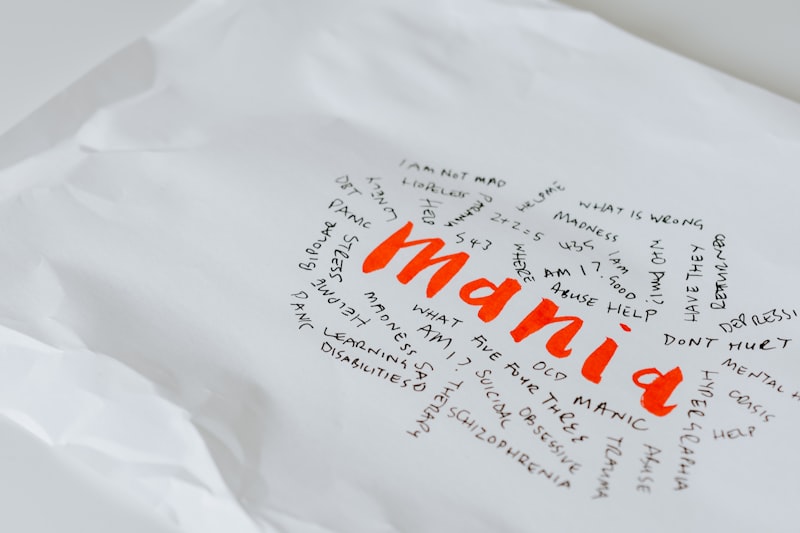- Dreaming of an abusive man can symbolize power imbalances, fear, unresolved trauma, and the need for self-reflection and healing.
- The symbolism of a husband in dreams can represent partnership, commitment, authority, and balancing masculine and feminine aspects.
- The roles an abusive husband plays in dreams can highlight physical abuse, emotional manipulation, and power imbalances in relationships.
- Dreaming both abusive and husband together can indicate conflicting emotions, inner conflict, the need to evaluate relationships, set boundaries, and seek growth and resolution.
Have you ever woken up from a dream about an abusive man, feeling confused or disturbed? Dreams can bring up powerful emotions and provide insight into inner selves. Understanding the symbolism and psychological analysis of these dreams is important in tackling any lingering trauma and promoting healing.
Analyzing the Symbolism and Meanings

1. Symbolism of Abusive Man in Dreams
When interpreting dreams of an abusive man, it is essential to consider the symbolism that this figure holds. The presence of an abusive man in a dream can represent various underlying emotions and experiences. Here are some key elements to explore when analyzing the symbolism:
- Power and Control
The symbolism of an abusive man often reflects issues related to power and control. This figure may represent a real or perceived imbalance of power in your waking life, where you feel dominated or controlled by someone else’s influence or authority. - Fear and Helplessness
Dreams featuring an abusive man may symbolize feelings of fear and helplessness. The presence of this figure may indicate that you feel vulnerable or powerless in certain aspects of your life, whether it be in a relationship, at work, or within your own personal endeavors. - Unresolved Trauma
Dreaming about an abusive man can also be a reflection of unresolved trauma from your past. This figure may symbolize a traumatic event or experience that continues to impact your emotions and well-being. The dream may be urging you to confront and work through these unresolved issues in order to find healing and closure. - Self-Reflection
The presence of an abusive man in your dream can also provide an opportunity for self-reflection. It may be a manifestation of certain aspects of your own personality or behaviors that you need to acknowledge and address. The dream may be highlighting any tendencies towards aggression, manipulation, or control that you need to confront within yourself.
2. The Meaning of Husband in Dreams
To fully understand the meaning of dreaming of an abusive man, we must also consider the symbolism and significance of a husband in dreams. In general, the husband figure often represents the masculine side of your own personality or can symbolize important relationships in your waking life. Here are a few key facets to explore when interpreting the husband figure in dreams:
- Partnership and Commitment
Dreaming of a husband can often symbolize a desire for a committed partnership or a need for stability and support in your waking life. It may represent your longing for love, companionship, and emotional connection. - Authority and Patriarchy
In some cases, the husband figure can represent authority figures or patriarchal values within society. This symbolism may be reflective of your own beliefs and attitudes towards relationships or social structures. - Inner Masculine Archetype
Looking beyond literal interpretations, the husband figure may embody the inner masculine archetype within your own psyche. It represents qualities such as strength, assertiveness, and rationality that may need to be acknowledged and balanced with your feminine aspects.
3. The Roles of an Abusive Husband in Dreams
When an abusive husband appears in your dream, it is crucial to explore the specific roles or actions this figure takes on. The roles played by an abusive husband can provide further insight into the underlying meanings of the dream. Here are some common roles that an abusive husband may take on in dreams:
- Acts of Physical Abuse
If the abusive husband physically harms you or exhibits violent behavior in the dream, it may symbolize deep-seated fears of physical harm or a sense of vulnerability in your waking life. It could also suggest feelings of being trapped or powerless within a particular situation or relationship. - Emotional Manipulation
An abusive husband may manipulate your emotions in the dream, seeking to control or belittle you. This role can symbolize a relationship or situation in which your emotions are being manipulated or your self-esteem is being undermined. It may be a sign that you need to assert yourself and establish boundaries to protect your emotional well-being. - Power Imbalances
The role of an abusive husband can highlight power imbalances in your waking life. This figure may represent a person or situation where you feel dominated or controlled, lacking autonomy or agency. The dream may be urging you to reevaluate and address these power dynamics in order to regain a sense of personal control.
4. What It Means to Dream Both Abusive and Husband Together
Dreaming both abusive and husband together can carry significant symbolism and meaning. The combination of these two elements highlights complex emotions, unresolved issues, or conflicting desires within the dreamer. Here are a few interpretations for dreaming both abusive and husband together:
- Conflicting Emotions
Dreaming both an abusive and supportive husband can reflect conflicting emotions within yourself or within a particular relationship. It may suggest that there are aspects of the relationship that are nurturing and supportive while also encountering moments of turmoil or mistreatment. - Inner Conflict
The combination of an abusive and husband figure could signify inner conflict within yourself. It may reflect aspects of your own personality that are contradictory or in tension with each other. This dream invites you to explore these conflicting emotions and work towards finding inner harmony. - Evaluating Relationships
Dreaming both abusive and husband together can prompt you to evaluate your relationships and consider whether they are healthy and supportive. It may be time to assess the patterns, dynamics, and overall well-being of the relationships in your waking life. - Setting Boundaries
The combination of an abusive and husband figure underscores the importance of setting boundaries. This dream may be a reminder to establish healthy boundaries in relationships, asserting yourself and refusing to tolerate abusive or harmful behavior. - Seeking Growth and Resolution
Dreaming both abusive and husband together can also be seen as an invitation to seek growth and resolution in your relationships. It may indicate a need to confront unresolved issues, communicate openly, or consider seeking therapeutic support to work through any difficulties.
Common Dream Scenarios

Dreams about abusive men can be distressing and leave us feeling unsettled upon waking. These dreams often symbolize deeper psychological and emotional dynamics, offering a window into our subconscious thoughts and experiences. In this section, we will explore common scenarios that occur in dreams about abusive men, providing insight into their meanings and potential interpretations.
1. Consequences of Past Experiences and PTSD
Dreams about abusive men can stem from past experiences of abuse or trauma. These dreams serve as a reflection of the psychological and emotional impact these experiences have had on our lives. They may evoke feelings of fear, helplessness, and anxiety, as we relive the trauma in our dreams.
Individuals who have experienced abuse in the past may be more prone to these types of dreams, as the subconscious mind attempts to process and heal from the trauma. These dreams can manifest as symbolic representations of the past experiences or as vivid recreations of the actual events.
For individuals with post-traumatic stress disorder (PTSD), dreams about abusive men can be particularly distressing. These dreams may trigger flashbacks, intense emotions, and physiological responses related to the original trauma. It is important for individuals experiencing these symptoms to seek support from a mental health professional who specializes in trauma therapy.
2. Understanding Common Symbols Related to Abuser Dreams
Dreams about abusive men often contain common symbols that provide insight into their meanings. By understanding these symbols, we can gain a deeper understanding of the underlying emotions and experiences being conveyed in the dream. Here are some common symbols related to abuser dreams and their potential interpretations:
- Power dynamics
Dreams about abusive men often involve power imbalances and control issues. These symbols represent feelings of being dominated or controlled by others in our waking lives. They may indicate a need to assert ourselves and regain control over our own lives. - Fear and helplessness
Dreams about abusive men may evoke intense feelings of fear and helplessness. These symbols reflect our vulnerabilities and highlight areas in our lives where we may feel overwhelmed or powerless. They may be an invitation to address these underlying emotions and seek support in navigating challenging situations. - Manipulation and gaslighting
Dreams about abusive men can also include symbols of manipulation and gaslighting. These symbols represent emotional manipulation and deceit in our waking lives. They may indicate the need to recognize and protect ourselves from toxic relationships or situations that are causing emotional harm. - Sudden anger or aggression
Dreams about abusive men may involve sudden outbursts of anger or aggression. These symbols reflect unresolved anger or conflicts within ourselves. They may be a reminder to address these emotions in a healthy and constructive manner, rather than allowing them to manifest in harmful ways.
3. Strategies for Coping with Abusive Men Dreams
Dreams about abusive men can be unsettling, but there are strategies that can help us cope with these dreams and the emotions they evoke. Here are some techniques that can support us in navigating these challenging dreams:
- Self-care
Engaging in self-care activities can help promote a sense of well-being and emotional balance. This can include practicing relaxation techniques, engaging in hobbies or activities that bring joy, and prioritizing physical and mental health. - Therapy or counseling
Seeking the support of a mental health professional can provide a safe space to explore the emotions and experiences related to abusive men dreams. Therapy or counseling can help individuals process past traumas, develop coping strategies, and work towards healing. - Journaling
Keeping a dream journal can be a helpful tool for exploring the symbolism and themes present in abusive men dreams. Writing down the details, emotions, and symbols from these dreams can provide valuable insights and aid in their interpretation. - Seeking support
Sharing dreams about abusive men with a trusted friend or loved one can provide a sense of relief and validation. It can be helpful to discuss these dreams and the emotions they evoke, allowing for a deeper understanding and potential resolution.
Dreams about abusive men are highly personal and can vary greatly from individual to individual. While these dreams can be unsettling, they also offer an opportunity for self-reflection, healing, and growth. By exploring the symbolism and seeking support, we can navigate these dreams with empathy and compassion, working towards emotional well-being and resolution.
Psychological and Emotional Analysis

Dreams can often be a reflection of our subconscious thoughts and emotions, providing insights into our innermost desires, fears, and experiences. When it comes to dreaming of an abusive man, the symbolism and messages within these dreams can have profound psychological and emotional significance. In this section, we will delve into various aspects of dreaming of an abusive man, exploring the effects of trauma on dreams, the transformation of abusers into other symbols in dreams, Jung’s perspective on dreams, and techniques for managing disturbing dreams through lucid dreaming therapy, positive affirmations, and dream journals.
1. The Effect of Trauma on Dreams
One common aspect of dreaming of an abusive man is the potential connection to past trauma. Traumatic experiences can leave a lasting impact on our subconscious minds, often resurfacing in dreams as a way to process and heal from these experiences. Dreams involving an abusive man may represent repressed emotions, unresolved conflicts, or ongoing fears related to past traumatic events.
For individuals who have experienced abuse or violence in their lives, dreaming of an abusive man can be especially distressing. These dreams may serve as a reminder that healing is still needed and that there may be unresolved emotions or trauma that require attention. It is important to approach these dreams with compassion and seek professional help if necessary to navigate the healing process.
2. Transformation of Abusers to Other Symbols in Dreams
It is not uncommon for abusers in dreams to transform into other symbols or figures. Our subconscious mind has a unique way of representing complex emotions and experiences through symbolic imagery. In the case of dreaming about an abusive man, the presence of the abuser may represent power dynamics, control issues, or feelings of vulnerability that extend beyond the specific individual.
Abusers in dreams may manifest as other symbols such as animals, natural disasters, or masked figures. These symbols serve as metaphors for the emotions and experiences associated with the abuser. For example, an abusive man may transform into a raging bull, representing the overwhelming force and dominance that the dreamer may feel in their waking life.
Understanding the transformation of abusers into other symbols in dreams requires careful reflection and introspection. Consider the emotions, behaviors, or situations associated with the abuser in the dream and how they relate to your own experiences and relationships. Identifying these symbols can provide valuable insights into your subconscious thoughts and emotions.
3. Jung’s Perspective on Dreams
Analytical psychologist Carl Jung believed that dreams were a window into our unconscious minds, revealing the hidden aspects of our psyches. From Jung’s perspective, dreams held significant importance in understanding ourselves and our journeys towards individuation, or the integration of our conscious and unconscious lives.
Dreams involving an abusive man can be viewed through the lens of Jungian analysis, offering insights into the collective unconscious and archetypal patterns that exist within all human beings. The symbolism in these dreams can signify power imbalances, confrontations with one’s shadow self, or a need for healing and transformation.
According to Jung, dreams provide a means for individuals to work through unresolved conflicts, confront repressed emotions, and integrate fragmented aspects of their personalities. By diving deeper into the symbolism of dreaming about an abusive man, individuals can tap into their own inner wisdom and navigate their personal journeys towards wholeness.
4. Managing Disturbing Dreams through Lucid Dreaming Therapy, Positive Affirmations, and Dream Journals
When it comes to coping with disturbing dreams like dreaming of an abusive man, there are various techniques that can be helpful in managing these experiences.
Lucid Dreaming Therapy
Lucid dreaming is a practice that involves becoming aware that you are dreaming while in the dream itself. This awareness allows individuals to take control of their dreams and actively participate in them. Through lucid dreaming therapy, individuals can confront their dream abusers, transform the dream story, or find ways to overcome the feelings of fear and helplessness.
By using techniques to induce lucid dreaming, such as reality checks or creating a dream journal, individuals can increase their likelihood of experiencing lucidity during dreams. Lucid dreaming therapy can be a powerful tool in overcoming the emotional impact of dreaming about an abusive man, providing a sense of empowerment and potential resolution.
Positive Affirmations
Positive affirmations are statements that can be used to challenge negative thoughts and beliefs. Incorporating positive affirmations before sleep can help shift the focus from fear and negativity to more empowering thoughts and emotions. Affirmations like “I am safe and protected” or “I have the strength to overcome challenges” can provide comfort and reassurance when dealing with disturbing dreams.
By repeating these affirmations regularly, individuals can reprogram their subconscious mind and cultivate a more positive and empowering mindset. Positive affirmations can be utilized as a way to counteract the lingering effects of dreaming about an abusive man, fostering an environment of healing and self-compassion.
Dream Journals
Keeping a dream journal is an effective way to explore the symbolism and messages within dreams. By writing down details of the dream immediately upon waking, individuals can capture the emotions, symbols, and themes that resonate with them. Dream journals provide a safe space for reflection and analysis, allowing for a deeper understanding of the subconscious messages conveyed in dreams.
Analyzing dream journals can help identify patterns, symbols, or recurring themes in dreams about abusive men. By developing an awareness of these patterns, individuals can start unraveling the deeper meanings behind their dreams and gain insights into their own thoughts and emotions.
Various Cultural, Religious Views and Specific Emotional Conditions

Dreams have always been a topic of fascination and interpretation across cultures and religions. However, the specific emotional conditions of dreaming about an abusive man can be distressing and confusing. In this blog post, we will provide a detailed overview of different cultural and religious interpretations, the role of cognitive behavioral therapy (CBT) in dream analysis, the use of dream dictionaries for decoding symbols, and when to seek professional help for nightmares.
1. Brief Overview on Different Cultural and Religious Interpretations
Different cultures and religions have varying interpretations of dreaming about an abusive man. Here are some examples:
- In ancient Greek mythology, dreaming about an abusive man may symbolize an encounter with one’s shadow self, representing repressed emotions and desires.
- In many Native American cultures, dreaming about an abusive man is seen as a warning sign or message from the spirit world to take action against potential harm.
- In Islamic culture, dreaming about an abusive man can be interpreted as a sign of weakness or the need to confront one’s fears or enemies.
- In some African tribes, such dreams are interpreted as a representation of one’s ancestors seeking to communicate a message or warn against danger.
2. The Role of Cognitive Behavioral Therapy (CBT) in Analyzing Dreams
Cognitive behavioral therapy (CBT) is a common approach used by therapists to analyze dreams and help individuals identify and change underlying emotions and thoughts. It involves recording and analyzing dreams to uncover patterns, themes, and triggers that can help identify root causes of anxiety, depression, or trauma.
CBT techniques used in dream analysis include:
- Recording dreams in a journal immediately upon waking up to capture details before they fade from memory
- Identifying recurring symbols or themes in dreams
- Analyzing emotions associated with each dream
- Using guided imagery to access deeper meanings and connections to past experiences
- Using dream reprocessing protocols to help process traumatic events and reduce associated distress and anxiety.
3. Role of Dream Dictionaries for Decoding Symbols
Dream dictionaries are a popular tool used to decode symbols and themes in dreams. The concept behind this tool is that different objects, people or events in a dream may have a deeper symbolic meaning that can be interpreted with the help of a dictionary or guide.
While these dictionaries can be useful, it is important to keep in mind that symbols may have different meanings depending on the individual’s personal experiences, cultural or religious background, and emotions associated with the dream. It is important to use these tools as a starting point for interpretation rather than relying solely on them.
4. When to Seek Professional Help for Nightmares
Nightmares are common among people who have experienced trauma or suffer from anxiety or depression. If nightmares persist and significantly impair daily functioning, it may be time to seek professional help. Here are some signs that it may be time to seek help:
- Frequent nightmares that cause significant distress or interfere with daily activities
- Disturbances in sleep patterns such as difficulty falling asleep or staying asleep
- Flashbacks or intrusive memories related to past trauma
- Avoidance behaviors such as avoiding specific people, places, or situations linked to the traumatic event
- Persistent feelings of fear, anger, guilt, or hopelessness
- Difficulty trusting others or feeling safe in social situations.
Conclusion
If you have dreamt of an abusive man, it’s important to remember that this is not a reflection of who you are or what you deserve. It’s a sign that there may be unresolved issues and emotions that you need to address. Take the time to reflect on the dream and what it means for your life. Consider seeking support from loved ones or a therapist who can help you work through any trauma or fears you may be experiencing. Remember, healing is a journey, and it’s okay to take it one step at a time. Be gentle with yourself and know that you are worthy of healthy relationships and a happy life.










Leave a Reply